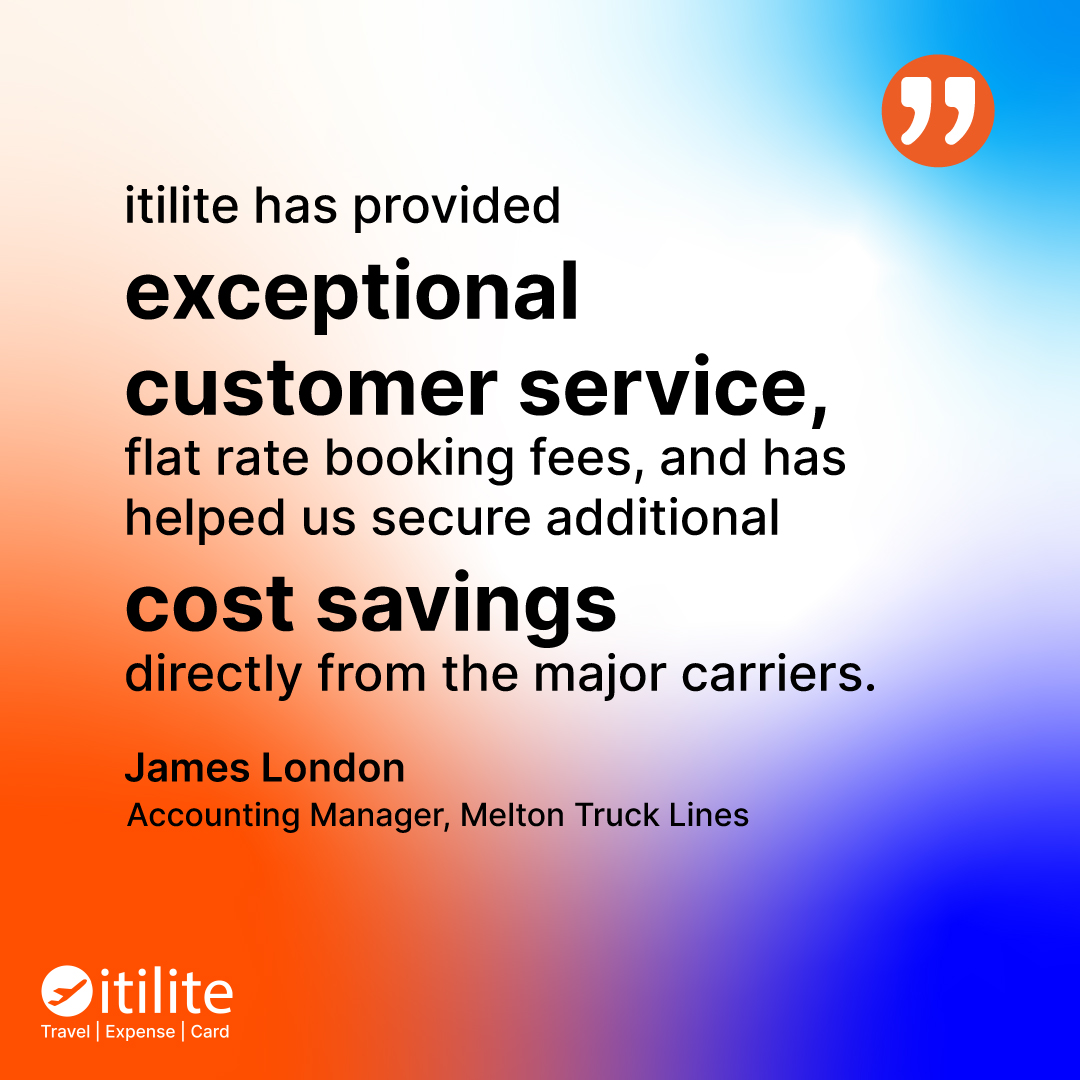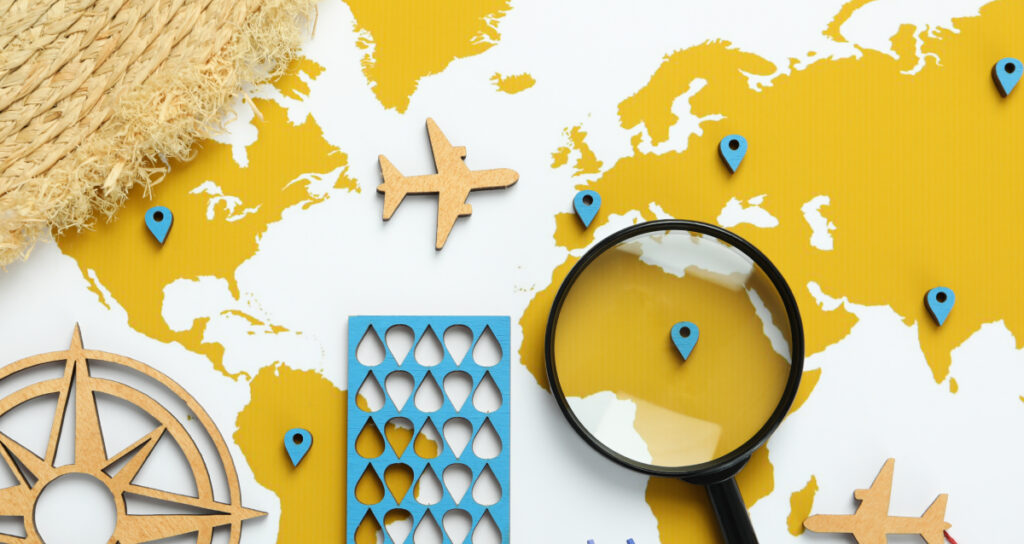
Planning, organizing, and executing a successful meeting and event travel is no piece of cake! Managing all these can be stressful and hectic if you are a travel manager or company owner. You must collaborate with multiple people, plan the events, select a suitable venue and destination, arrange transportation, and many more. Doing all these by yourself can get very overwhelming.
Whether you are planning for a crucial business event, a conference travel, a product launch, or even an industry event, it is essential that you master the art of planning and executing a successful meeting and events.
In this blog, we will provide you with 8 strategies for seamlessly executing meeting and event planning.
1. Research and Select Suitable Accommodations
The first and foremost tip for planning a successful meeting and event travel is to select a reasonable and comfortable accommodation. Here’s how you can choose a suitable accommodation:
Location: You must select accommodations somewhere nearby based on your chosen location for the business conference or event. Consider factors such as proximity to the event venue, accessibility to transportation hubs, and availability of nearby amenities like restaurants and shops.
Identify Accommodation Options: Conduct thorough research online and explore options that align with your budget and requirements. Use travel websites, hotel aggregators, and review platforms to compare prices, amenities, and guest reviews.
Assess Amenities and Services: You should select accommodations that offer amenities and services that are important for your employees. For example, if you’re organizing a conference, ensure that the hotel or venue provides adequate meeting spaces, audiovisual equipment, and Wi-Fi connectivity. Additionally, consider fitness centers, restaurants, and business centers that may benefit your attendees.
Consider Room Rates and Availability: Consider the room rates and availability of accommodations during your event date. Research whether additional charges or minimum stay requirements could impact the suitability and affordability of your participants.
Read Guest Reviews: Pay attention to guest reviews to gain insights into the quality and experiences of previous guests. Reviews can provide valuable information about cleanliness, service quality, noise levels, and overall satisfaction. Consider the overall rating and specific feedback on the aspects necessary for your attendees.
Consider Group Booking Options: If you book accommodations for a large group, inquire about group booking options and discounts. Many accommodations offer special rates and services for group bookings, so explore this possibility to save costs for your attendees.
2. Schedule Transportation Early
Scheduling transportation early is crucial for a successful meeting and event travel experience. In conference travel, you must plan the transportation carefully so everyone attends on time. Here’s a detailed explanation of why and how to prepare transportation in advance:
Avoid Last-Minute Hassles: You can avoid the stress and complications of last-minute arrangements by scheduling transportation early. This allows you to secure the best options and ensure availability, especially during peak travel seasons or in locations with limited transportation services.
Save Costs: Booking transportation in advance often provides the opportunity to find better deals and secure discounted rates. Airlines, for example, typically offer more affordable fares when booked well in advance. Additionally, planning early lets you take advantage of transportation providers’ promotions, group rates, or package deals.
Coordinate Attendee Arrival and Departure: When organizing a meeting or event, it is essential to coordinate attendee arrival and departure. By scheduling transportation early, you can ensure that all participants arrive at the event location on time and depart smoothly. This enables you to plan the event activities accordingly and avoid disruptions caused by delays or missed connections.
Arrange Group Transportation: If you have many attendees, arrange group transportation. This could involve booking buses, shuttles, or cabs to transport participants from the airport to the event venue or between different locations during the event. By scheduling early, you can secure the necessary vehicles and ensure everyone travels together efficiently.
Research Transportation Options: Researching transportation options is essential to find the most suitable and convenient modes of travel for your attendees. Depending on the location and specific requirements, you may consider options such as flights, trains, buses, rental cars, or a combination. Evaluate factors like travel time, cost, convenience, and the preferences of your participants to make informed decisions.
Consider Special Needs or Accommodations: Some attendees may have special transportation needs or require accommodations due to disabilities or mobility issues. Be proactive in identifying and addressing these requirements to ensure everyone can travel comfortably and access the event location without difficulties. Work with transportation providers to arrange suitable accommodations, such as wheelchair-accessible vehicles or assistance at airports or train stations.
3. Coordinate Event Logistics
Meeting and event travel, especially conference travel, includes various logistical aspects. You should create a detailed timeline, including registration procedures, session schedules, and additional activities. You must also ensure all participants receive comprehensive information about the event schedule, venue details, and specific requirements or preparations.
Define Objectives and Goals: First and foremost, a clear understanding of the objectives and goals of your event is necessary. This informs all the subsequent decisions and choices that you will make in planning and organizing the event.
Create a Checklist: Depending on the size and scale of your event, you can create a checklist that outlines all the details that need to be taken care of to ensure a successful outcome. Break down all the necessary activities into smaller tasks and assign responsibility to specific team members or departments.
Choose a Venue: Choosing the right venue for your event can significantly impact its success. Look for a venue that not only suits your objectives and goals but also accommodates the size and requirements of the event. Consider accessibility, parking, audiovisual equipment availability, and nearby lodging options.
Select Vendors: Depending on the nature of your event, you will require vendors to cater to various aspects. These may include catering services, audiovisual equipment rentals, lighting and decor providers, or transportation providers. Research and select reputable, reliable vendors that align with your budget and requirements.
Establish a Timeline: A timeline helps you keep track of all the tasks leading up to the event and ensures that everything is organized. Identify all the significant milestones and deadlines and establish a timeline that provides ample time for preparation and contingencies. Communicate the timeline to all team members to ensure that everyone follows it.
Manage Logistics Onsite: On the event day, you must coordinate all the logistics to ensure everything runs smoothly. This includes allocating responsibilities to team members, ensuring that vendors arrive and set up on time, overseeing equipment and technology setups, and resolving issues efficiently.
Communicate with Attendees: Effective communication with attendees is crucial. This covers pre-event communications such as sending invites, confirming RSVPs, and providing them with all relevant information, such as directions, event schedules, and parking details. During the event, have staff stationed throughout the space to answer questions and provide assistance when necessary.
4. Plan for Networking Opportunities
Networking is an essential component of meeting and event travel. Business networking is critical to personal growth and business development as a business owner or industry professional. It also involves attending events and meeting new people from your industry in search of new business prospects and innovative ideas. Therefore, you must incorporate planned opportunities for participants to connect, such as social mixers, networking sessions, or group activities. Encourage engagement and facilitate meaningful connections amongst attendees.
5. Utilize Event Technology
You must utilize event technology using digital tools, software, and applications that help simplify event planning, execution, and measurement processes. By leveraging event tech, you can streamline and automate various event-related tasks. Everything can be done seamlessly, from registration and check-ins to marketing and audience engagement.
Some of how you can utilize event technology are:
- Event Registration
- Mobile Event Apps
- Virtual and Hybrid Events
- Analytics and Reporting
6. Provide On-Site Support
Ensure an exceptional experience for attendees by providing on-site support. Have a designated team available to address questions, troubleshoot issues, and assist with any logistical challenges. Well-trained staff can help create a positive and stress-free environment for participants.
7. Establish Clear Communication Channels
Establish clear and efficient communication channels before, during, and after the meeting or event. Utilize email, group messaging apps, and other platforms to keep participants informed about any changes, updates, or reminders. Prompt responsiveness and clear communication contribute to a successful event experience.
8. Use Technology For a Seamless Experience
Utilizing business travel management software like itilite can significantly streamline the process of tracking business travelers and enhancing communication throughout the events, especially conference travel events. With this software, travel managers can handle everything about corporate events from a single platform. You can create an events dashboard, book flights, and track multiple itineraries, travel plans, and RSVP status.
Additionally, the software allows you to communicate and keep in touch with travelers proactively. Moreover, travelers can interact with participants or colleagues attending the same event. This could involve chat platforms, discussion boards, or social networking functionalities.
Execute Meeting and Event Travel without any Hassle
Following these 8 tips, you can easily navigate the complexities of planning and executing events and conference travel. Moreover, you can opt for a travel management software solution to make event planning more efficient.
itilite is a comprehensive corporate travel management software that enables you to streamline business travel. With the innovative ‘Events Travel’ feature, managing business travel events has never been easier. Organizers can effortlessly create and coordinate events on the application and send invites to multiple participants. Further, they can track their RSVP status, travel plans, and itineraries.
To get a first-hand experience of the features, try itilite for free now.


















